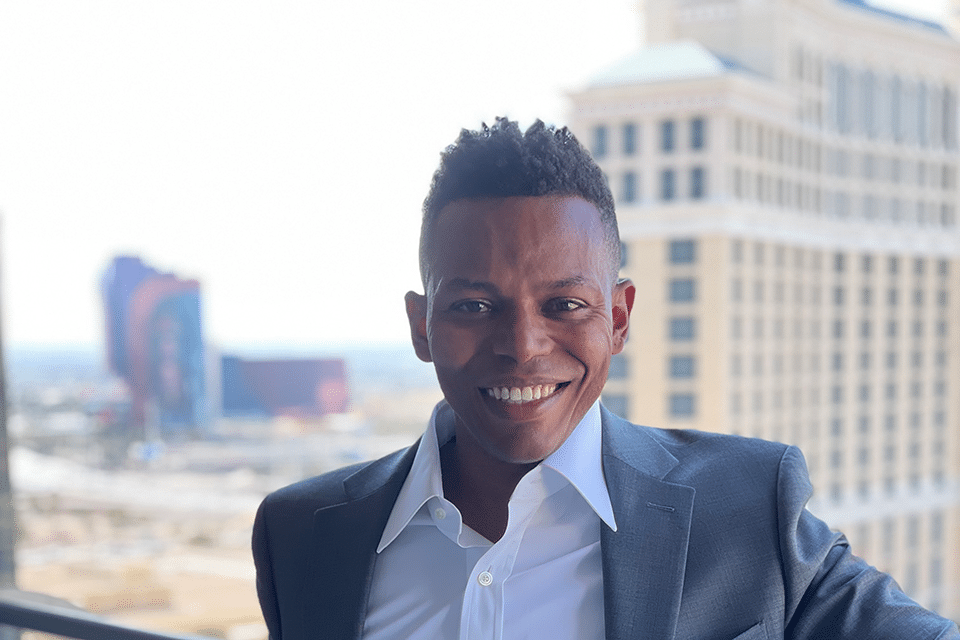How a CEO Can Best Handle a Crisis

Sooner or later, any CEO is bound to face a crisis, but when you own and operate 47 restaurant franchises as I do, which have included 33 Smoothie Kings, 21 Dunkin’s, 2 Chicken Salad Chick’s and 1 Arby’s, breakdowns and natural disasters come with the territory. In my book, I From Scrappy to Self-Made: What Entrepreneurs Can Learn from an Ethiopian Refugee About Turning Roadblocks into an Empire, co-written with Gary M. Stern, I describe how I learned to confront and surmount an array of these crises.
At some of our fast-food and quick service restaurants, we’ve faced floods, hurricanes and power outages, where sometimes customers had to be moved into a safe room, away from flying glass. And the main skill that I’ve learned through these harrowing experiences, is keeping calm is the best way to remedy the situation. I like to say that I’ve developed mental callouses that strengthen me internally and externally to never get bent out of shape.
I’ve learned that some things–floods, hurricanes, power outages–you can’t control, but if you stay calm, it reduces your stress level, you don’t get bent out of shape and you’re better able to problem-solve.
When I was younger, I was a soldier in the U.S. Army where I was on patrol in Iraq. That experience also reinforced how when you’re in a firefight, staying in control and not getting bent out of shape are the most effective ways to ensure safety. Anxiety and negative thinking exacerbate stress, cause too much distress and distorts thinking.
On a personal level, I also work out regularly at a fitness center (I once owned a fitness franchise) and that helps keeps me balanced. I’ve always believed that the mind and the body are interconnected, so staying limber and fits helps to balance me out when a crisis strikes.
At some of our restaurants, there are occasional power outages. Some may last for 20 minutes, some two hours, and some longer. When it happens, the manager at the particular restaurant calls me so I’m usually helping out via my smartphone or a Zoom call. I train them to act as my surrogate, and stay cool and calm. If it’s a brief outage, most times, the food won’t spoil, but if it’s prolonged, some food will have to be discarded.
When the power outage happens, I usually consult local weather apps to see how long it’s likely to last and then make a plan. If the forecast is for a prolonged outage, we’ll close the store to avoid any customer or employee disruptions. If the manager stays calm, the odds are strong that so will the staff. And if the manager and staff keep balanced, customers too will be reassured.
With experience, you glean what to expect. The power is going to return so it’s just a matter of time. Spoilage could happen if the electricity stays off for prolonged periods, but even that can be taken in stride.
With restaurants, handling a crisis is quite dramatic and clear, but any business, a laundromat, cleaning service, locksmith, and, of course, a financial services or insurance company face these mammoth shutdowns. It doesn’t matter what the nature of the business is: staying calm and under control are the best ways to weather the storm.
What challenges do you face? Do you have to close the office and tell your staff to go home? Is there a reason to call emergency services or the police? Is anyone in danger or hurt? Whether you’re dealing with donuts, as I do, at Dunkin’s eateries, or financial clients at an investment company, staying under control sends the message that we will overcome this and we’ll be back in business soon.
So when the crisis strikes, the calmest person in the room is the one who remains most in control. That’s the message that staying well-balanced in a crisis conveys.
Written by Yonas Hagos.
Have you read?
Ranked: These Are The Best War Movies of All Times And Why.
Unveiling Extraordinary Immigrant Achievers: The Impact of Naturalized Citizens.
Imperial Echoes: 22 Leaders, and their Lessons, and Legacies.
Rebranding Countries: 17 Names That Redefined The Nation’s Identity.
These Are The Largest Warships In The World.
Bring the best of the CEOWORLD magazine's global journalism to audiences in the United States and around the world. - Add CEOWORLD magazine to your Google News feed.
Follow CEOWORLD magazine headlines on: Google News, LinkedIn, Twitter, and Facebook.
Copyright 2025 The CEOWORLD magazine. All rights reserved. This material (and any extract from it) must not be copied, redistributed or placed on any website, without CEOWORLD magazine' prior written consent. For media queries, please contact: info@ceoworld.biz








